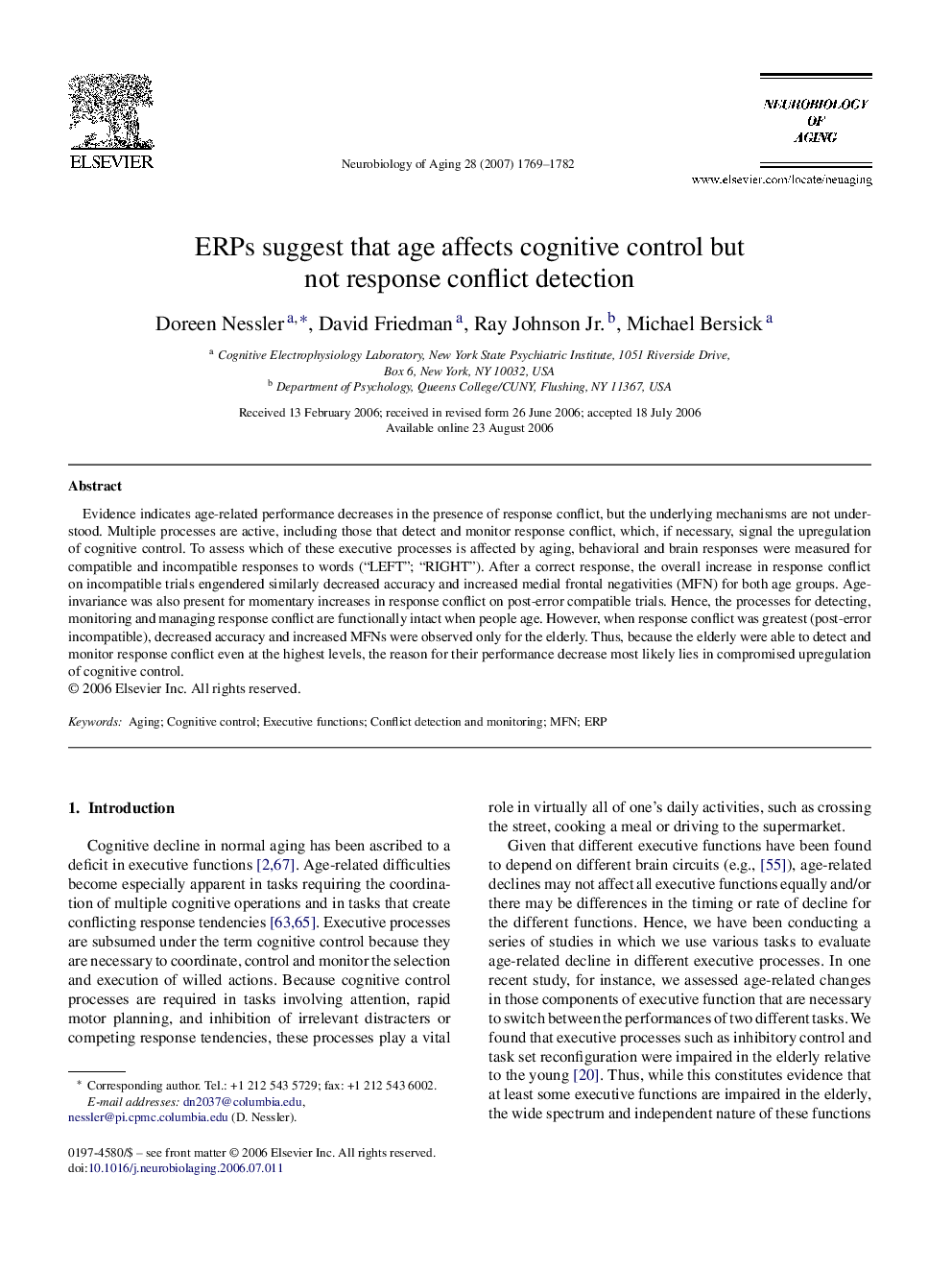| Article ID | Journal | Published Year | Pages | File Type |
|---|---|---|---|---|
| 331369 | Neurobiology of Aging | 2007 | 14 Pages |
Evidence indicates age-related performance decreases in the presence of response conflict, but the underlying mechanisms are not understood. Multiple processes are active, including those that detect and monitor response conflict, which, if necessary, signal the upregulation of cognitive control. To assess which of these executive processes is affected by aging, behavioral and brain responses were measured for compatible and incompatible responses to words (“LEFT”; “RIGHT”). After a correct response, the overall increase in response conflict on incompatible trials engendered similarly decreased accuracy and increased medial frontal negativities (MFN) for both age groups. Age-invariance was also present for momentary increases in response conflict on post-error compatible trials. Hence, the processes for detecting, monitoring and managing response conflict are functionally intact when people age. However, when response conflict was greatest (post-error incompatible), decreased accuracy and increased MFNs were observed only for the elderly. Thus, because the elderly were able to detect and monitor response conflict even at the highest levels, the reason for their performance decrease most likely lies in compromised upregulation of cognitive control.
